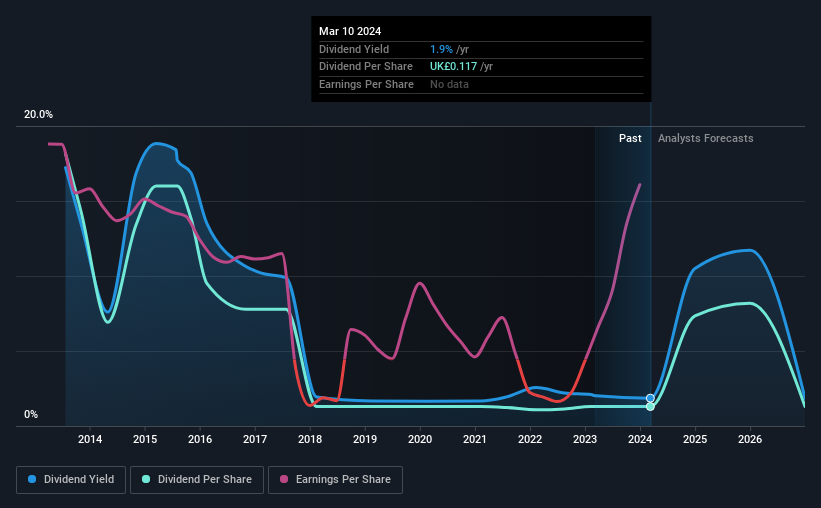Lancashire Holdings (LON:LRE) Could Be A Buy For Its Upcoming Dividend
It looks like Lancashire Holdings Limited (LON:LRE) is about to go ex-dividend in the next three days. The ex-dividend date occurs one day before the record date which is the day on which shareholders need to be on the company's books in order to receive a dividend. The ex-dividend date is important as the process of settlement involves two full business days. So if you miss that date, you would not show up on the company's books on the record date. Meaning, you will need to purchase Lancashire Holdings' shares before the 14th of March to receive the dividend, which will be paid on the 12th of April.
The company's upcoming dividend is US$0.50 a share, following on from the last 12 months, when the company distributed a total of US$0.15 per share to shareholders. Looking at the last 12 months of distributions, Lancashire Holdings has a trailing yield of approximately 1.9% on its current stock price of UK£6.29. Dividends are an important source of income to many shareholders, but the health of the business is crucial to maintaining those dividends. That's why we should always check whether the dividend payments appear sustainable, and if the company is growing.
Check out our latest analysis for Lancashire Holdings
Dividends are usually paid out of company profits, so if a company pays out more than it earned then its dividend is usually at greater risk of being cut. Lancashire Holdings has a low and conservative payout ratio of just 15% of its income after tax.
Generally speaking, the lower a company's payout ratios, the more resilient its dividend usually is.
Click here to see the company's payout ratio, plus analyst estimates of its future dividends.
Have Earnings And Dividends Been Growing?
Businesses with strong growth prospects usually make the best dividend payers, because it's easier to grow dividends when earnings per share are improving. If earnings fall far enough, the company could be forced to cut its dividend. It's encouraging to see Lancashire Holdings has grown its earnings rapidly, up 48% a year for the past five years.
Another key way to measure a company's dividend prospects is by measuring its historical rate of dividend growth. Lancashire Holdings's dividend payments per share have declined at 23% per year on average over the past 10 years, which is uninspiring. It's unusual to see earnings per share increasing at the same time as dividends per share have been in decline. We'd hope it's because the company is reinvesting heavily in its business, but it could also suggest business is lumpy.
The Bottom Line
Has Lancashire Holdings got what it takes to maintain its dividend payments? When companies are growing rapidly and retaining a majority of the profits within the business, it's usually a sign that reinvesting earnings creates more value than paying dividends to shareholders. This strategy can add significant value to shareholders over the long term - as long as it's done without issuing too many new shares. Lancashire Holdings ticks a lot of boxes for us from a dividend perspective, and we think these characteristics should mark the company as deserving of further attention.
Wondering what the future holds for Lancashire Holdings? See what the nine analysts we track are forecasting, with this visualisation of its historical and future estimated earnings and cash flow
Generally, we wouldn't recommend just buying the first dividend stock you see. Here's a curated list of interesting stocks that are strong dividend payers.
Have feedback on this article? Concerned about the content? Get in touch with us directly. Alternatively, email editorial-team (at) simplywallst.com.
This article by Simply Wall St is general in nature. We provide commentary based on historical data and analyst forecasts only using an unbiased methodology and our articles are not intended to be financial advice. It does not constitute a recommendation to buy or sell any stock, and does not take account of your objectives, or your financial situation. We aim to bring you long-term focused analysis driven by fundamental data. Note that our analysis may not factor in the latest price-sensitive company announcements or qualitative material. Simply Wall St has no position in any stocks mentioned.

